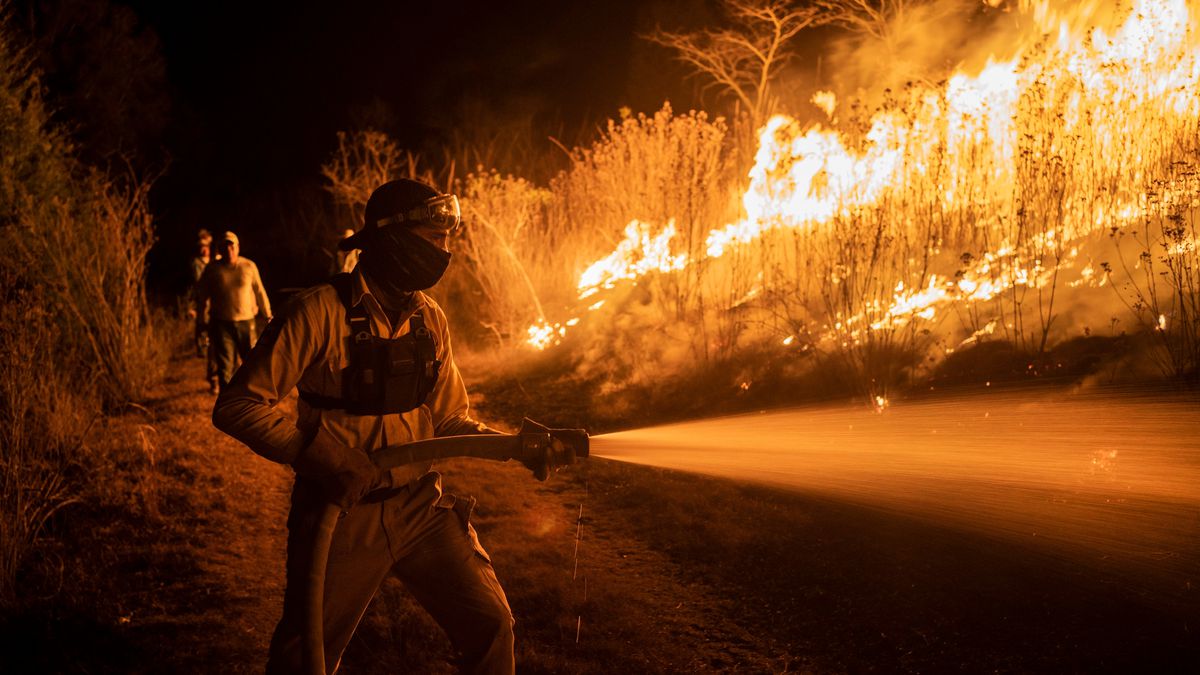It is surprising that a person deliberately sets fire to a mountain and, even more, that he finds pleasure in it.
Apart from negligent behavior, where the flames arise due to imprudence, such as lighting a barbecue in an inappropriate place or throwing a cigarette butt into the forest, there are people who carry out fires intentionally.
For these forest predators, like the Neros of the 21st century, fire can be a way of obtaining economic benefits (requalifying land as developable or collecting the amount of an insurance policy, among others), but also a way of expressing certain emotions that are part of an ancestral atavism in rural areas.
Thus, burning the forest for an arsonist can be a form of retaliation against a neighbor with whom there is a dispute, but also a way of taking revenge on the bride's parents who do not accept him as a son-in-law, on the new couple of the ex-girlfriend or neighbors for pending grievances in relation to the boundaries of the land.
As an example, a businessman from a Portuguese city admitted having burned down his farm so that his ex-wife would feel sorry and return to him.
Other times it is a displaced aggression: someone humiliated by their boss at work or who feels slighted by their family may burn public property to vent their emotions of anger and resentment.
And in some other people the important motivating factor is vandalism or sheer destructive effect.
Thus, sometimes emboldened by the consumption of alcohol, the use of fire can be a way of venting their anger, expressing their emotional discomfort or even gaining notoriety as a means of self-affirmation.
These arsonists who act out of spite or revenge should not be confused with people who are affected by pyromania, in whom there is an overwhelming need to plan and cause fires without apparent motivation in response to an uncontrollable pathological impulse.
It is about witnessing a show that is as exciting as possible, large in size and with a high level of drama.
Arsonists love fire and don't aim to harm anyone in particular, even though they do - this is a side effect.
The only thing they seek is the pleasure that comes from looking at the flames.
This disorder, fortunately very rare (it can be responsible for 3%-5% of forest fires), brings with it an alteration of consciousness, like a trance situation,
It occurs more commonly in people who also have other psychological problems, such as a decompensated intellectual disability, alcohol abuse or antisocial behavior, and is characterized by the person's excitement when closely observing the action of the flames and all the paraphernalia associated with it. their extinction (fire engines, helicopters, shocking images on TV, etc.).
In fact, they can even collaborate as volunteers in the work of firefighting personnel.
Thus, a person detained in a Galician city for arson behavior promised not to burn the mountain again if he was allowed to attend the fire extinction from an Assistance Services helicopter.
and it is characterized by the excitement of the person when closely observing the action of the flames and all the paraphernalia associated with their extinction (fire engines, helicopters, shocking images on TV, etc.).
In fact, they can even collaborate as volunteers in the work of fire fighting personnel.
Thus, a person detained in a Galician city for arson behavior promised not to burn the mountain again if he was allowed to attend the fire extinction from an Assistance Services helicopter.
and it is characterized by the excitement of the person when closely observing the action of the flames and all the paraphernalia associated with their extinction (fire engines, helicopters, shocking images on TV, etc.).
In fact, they can even collaborate as volunteers in the work of fire fighting personnel.
Thus, a person detained in a Galician city for arson behavior promised not to burn the mountain again if he was allowed to attend the fire extinction from an Assistance Services helicopter.
They are usually adults, men, of a low sociocultural level, with feelings of inferiority, who are conflictive in social relationships with their neighbors and have problems controlling impulses and adapting to their environment.
Most often, they live and act alone and are used to burning stubble and scrub in their village to facilitate the sprouting of fresh grass and thus increase the area of pasture.
As children they have often experienced feelings of family abandonment, difficulties with school integration and a great fondness for using matches and lighters.
A reason for the proliferation of large fires in a short period of time, apart from the weather conditions and the state of abandonment of the mountains, is the imitation effect.
Nothing excites arsonists, who often live in the same geographic area as the fire, as much as watching forests burn so easily.
These people, sometimes emboldened by the use of alcohol, show a great fascination with fire, they can experience a release of inner tension when contemplating the flames and an increase in their self-esteem, seeing what they have been able to do, and even a sexual arousal.
In short, arsonists are repeat offenders in their fire-setting behavior, experience strong emotional tension or arousal before setting fire to the bush, and have a fascination with the flames and the activities and equipment designed to fight them, as well as a sense of pleasure and relief when the whole process is triggered.
You can follow
EL PAÍS Salud y Bienestar
on
,
and
.









